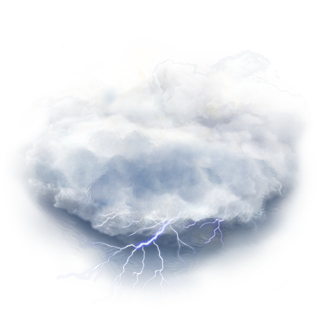Note: This piece was adapted from a speech given at the History of Ideas program’s “We Don’t Need Another Hero!” event.
I think this theory gets at something more fundamental than simply “does history make great men, or do great men make history?” I think this theory boils down to a question of emphasis. When we look at history, do we place a heavier emphasis on movements, that is, general waves or directions societies move in, or do we emphasize persons at the forefront of that shift? The question of where to place the emphasis is largely, in my mind, at the very least, up to each individual who studies history.
But for what it’s worth, in my attempt to tackle this question of emphasis, I’ll begin with the assumption that great men do not exist in a vacuum. Great men interact with a group of people and sociopolitical circumstances that shape their purposes, but rather than remaking those circumstances or making those people, great men serve as reflections of what that group of people wants from their existing circumstances. I find Ralph Waldo Emerson’s writing on this matter, that great men are representative of “things” and “ideas,” in “Uses of Great Men,” most helpful in understanding this historical phenomenon as it captures the externalities that establish men as historically great forces.
And as a footnote, I would like to specify that my remarks do not only pertain to men.
In 1840, the Scottish Calvinist Thomas Carlyle delivered “On Heros, Hero-Worship, and the Heroic in History;” his six-lecture series was given as traditional platforms of authority were being torn down by gregarious mavericks who were sickened by a status quo of lavish aristocracy and neglect of the common man. Carlyle concluded that “the history of what man has accomplished in this world, is at bottom, the History of the Great Men who have worked here.” On its face, Carlyle’s thesis is attractive because it exists harmoniously alongside the narrative-driven historical tradition in which we interpret history through a lens of thematic sequences that demonstrate the nature of relations between groups and their dogmas. Further, there is a degree of truth to Carlyle’s conclusions. After all, where would our societies be without the brilliancies of Gutenberg’s printing press, Fleming’s discovery of penicillin, or Cerf’s DARPA project that gave us the internet?
However, I think Carlyle’s thesis so earnestly reveres the charisma of the great man that it overlooks the externalities surrounding him. Alternately, in his 1873 “Study of Sociology,” Herbert Spencer, an English Victorian, teased out the importance of the environment to the great man. Spencer submitted to Carlyle’s prioritization of the personality but precisely sensed that charisma couldn’t amount to much if the society it was attempting to capture wasn’t—for a lack of more refined words—ready for it. Spencer noted that in every hero’s rise to influence, there are sociological preconditions that lift him to prominence; he wrote that “before the great man can re-make society, his society must make him.” Spencer’s characterization lodges the hero at the nucleus of his society; he is within his society’s existing social fabric, he is a byproduct of it.
Carlyle, and later in his writing, Weber, characterized the hero as a kind of external Schumpeterian disruptor who transforms the nature of his society by reshaping the substance of social conditions according to his so-called “charismatic will.” Spencer and the turn-of-the-century American psychologist Charles Horton Cooley rightly understood that, while charisma is indeed a powerful tool, the hero’s real power comes from his appeal to our most-ingrained habits and tendencies, which are innately internal. The hero is appealing to something that is already there—so deeply ingrained that we fail to even notice when it is being appealed to.
Enter Emerson, who in 1849 wrote that the hero’s success is stringent on his relatability to his society. He is, in a sense, accountable to his society throughout his glorification. This is precisely so because he serves as a reflection of that society. The hero can be understood as a sociological mirror: he reflects his society’s most sacrosanct traditions, its greatest shortcomings, as well as its loftiest aspirations. In this sense, the hero cannot stray far from his society’s pursuits whilst still expecting to retain his status within it because he would cease to be a reflection; he becomes something else entirely.
I think Emerson’s observations on the accountability of the hero are perhaps most promising in understanding the role of the hero in our society, as “the constituency determines” the hero’s vote. The hero serves a function akin to an elected representative’s, advocating for us on our behalf. I understand the crux of Emerson’s argument to be that we use heroes to change the nature of existing circumstances of societies. In a certain sense, heroes serve a selfish purpose; just as James’ observation that individuals of deep religious conviction use God “for the value of the fruits, he seemed to yield” similarly, societies use heroes to establish the future they wish to exist in. I think this is the ultimate end of the hero.
From this understanding of the hero, I think it can be inferred that heroes serve an exact and narrow purpose: to reflect their societies’ essence and ultimate desires. Thus, I don’t think that individuals make history. I don’t think they can, individually, at the very least. Environments matter too greatly to be overlooked; the environment makes the man, not the other way around. The existing societal features predetermine the man’s mission because heroes are meant to be used for a higher purpose, they are to be exploited to enact change, which is always a mission greater than themselves. This is the hero.


